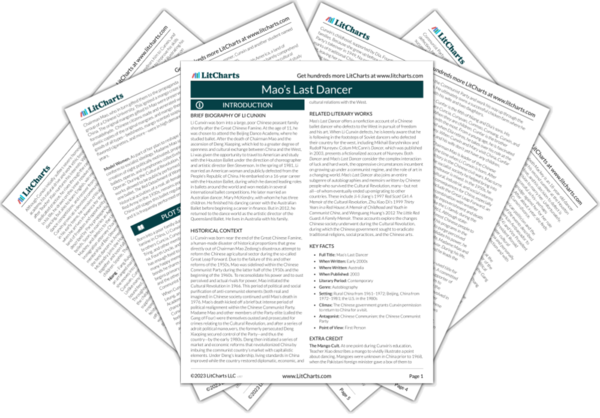Previous
Chapter 24: A Millet Dream Come True
|
Previous
Chapter 24: A Millet Dream Come True
|
Mao’s Last Dancer: Chapter 25: No More Nightmares Summary & Analysis |
Next
Chapter 26: Russia
|


Upgrade to unlock the analysis and theme tracking for all of Mao’s Last DancerMao’s Last Dancer!
Get LitCharts A+